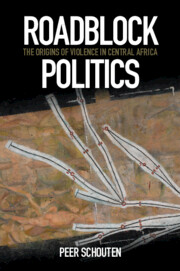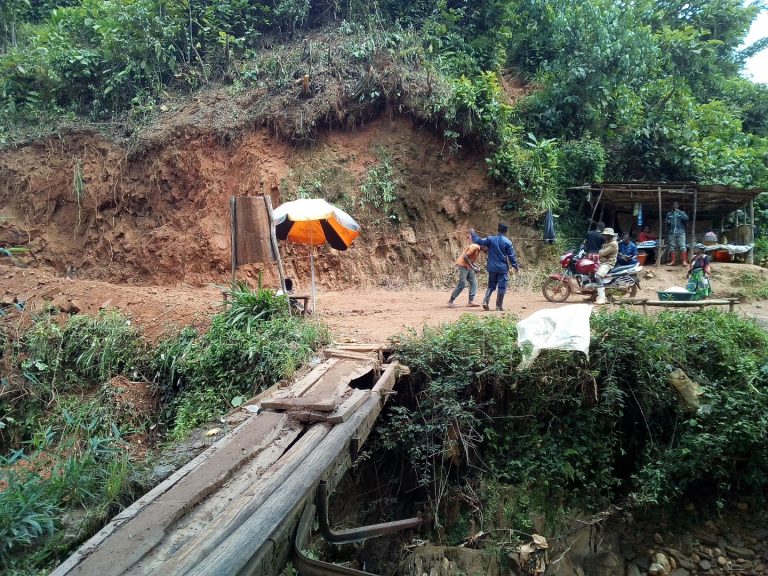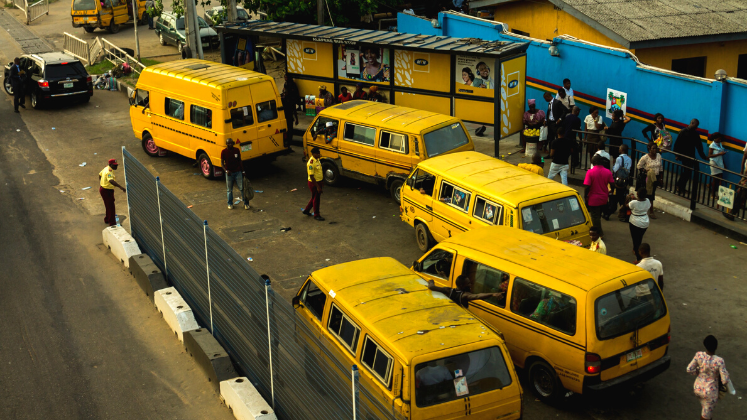In Roadblock Politics: The Origins of Violence in Central Africa, Peer Schouten offers a new way to think about state power and violence in and through infrastructure, exploring blockade points run by an assortment of state officials, military and rebel factions, bandits and villagers that levy transit taxes. This is a powerful and empirically detailed account of the messy politics of control that has characterised the region’s logistical and trade flows over time, writes Jonathan Silver.
Roadblock Politics: The Origins of Violence in Central Africa. Peer Schouten. Cambridge University Press. 2022.
 The primary transport networks of important corridors for global supply chains are ‘littered with roadblocks’ (272), which mean nothing can move without payment. In Roadblock Politics, Peer Schouten draws on extensive fieldwork in the Democratic Republic of Congo (DRC) and Central African Republic (CAR) to develop his analysis. Over the last decade or so he has mapped over 1000 roadblocks that complicate the ways in which the region’s geography might be approached.
The primary transport networks of important corridors for global supply chains are ‘littered with roadblocks’ (272), which mean nothing can move without payment. In Roadblock Politics, Peer Schouten draws on extensive fieldwork in the Democratic Republic of Congo (DRC) and Central African Republic (CAR) to develop his analysis. Over the last decade or so he has mapped over 1000 roadblocks that complicate the ways in which the region’s geography might be approached.
In this telling, the roadblock is not just a ‘pervasive phenomenon’; it is also ‘a key political technique in the struggle to shape mobile economies that extend far beyond the region’ (3). The author is clear that the operations of logistical space in the region should not be characterised by chaos, as has often been articulated, but instead by ‘rather consistent rules and logics of control’ (18). By proposing this alternative reading of the geography of the region, Schouten opens out the need to take seriously these conditions in how we understand global logistics, drivers of conflict and political order.
The book is organised into two main sections: Part One is a comprehensive prehistory of the roadblock. This includes a focus on Hongo politics in which Schouten establishes a shift in how various communities encounter the trade caravans that became operational from the 1830s. These movements along various routes establish the potential for control over narrow passage points to generate levying opportunities, particularly along the trunk road to the Swahili coast and the Congo River. Schouten uses historical records to show the calculations that were required for trade caravans to be profitable, and the delicate negotiations that were required to navigate these routes.
This is followed by an analysis of the infrastructures of empire, in which gradual attempts by various colonial and imperial powers to exert logistical power emerge through appropriation of the pre-colonial system. Schouten shows how this ordering was later superseded through the ‘thickening of the infrastructure grid’ as a form of ‘infrastructural colonization’ (78-79) and how sabotage of these systems was a critical mode of anti-colonial resistance. The final historical chapter outlines the ruination of these infrastructures of empire, as the collapse of colonial economies predicated the rapid disintegration of transport networks, state authority and the subsequent emergence of deregulated supply chain capitalism.

Photo by author Peer Schouten. Credit: Cambridge University Press.
The second part of the book offers a contemporary analysis of roadblock politics to show how the making of both modern conflicts, and the operations of logistics on the supply chain frontier, are anchored in and around the roadblock and its politics. We learn through a focus on roadblock geographies and supply chain frontiers that power no longer resides in the centre, but like in pre-colonial times, along the routes through which trade is forced to travel.
To understand this contemporary geography the author introduces us to terms such as ‘non-conventional logistics’ (203) to explain how global corporations navigate the terrain of the roadblock through networks of logistical subcontractors and entrepreneurs, national transport companies and various political alliances. In doing so, Schouten shows that claims of transparency and avoidance of financial contributions to rebel groups, by both aid organisations and corporations such as Heineken, do not stand up to scrutiny.
Focusing on both the DRC and CAR adds a critical comparative strength to the book and Schouten’s arguments given the convergences and differences in the operations and contemporary geographies of roadblocks in both countries. He also shows how these ideas of roadblock politics are useful in thinking about state power in other places around the world. Whether in eighteenth-century England through the operation of 8,000 toll gates, or more recently in Afghanistan as the US navigated the country’s checkpoints, we see how the idea of roadblock politics might travel.
This book provides a unique contribution to a range of debates. Its focus on roadblocks and control over key routes as a vital source of power and their resulting contestation upends much conventional thinking. This position rejects the reading of conflict in the region as a matter of control over vast territories or key zones of mineral extraction, which have dominated much contemporary analysis.
In doing so, the author offers two clear contributions. Firstly, he challenges traditions of thinking about the making and exerting of state and extra-state power as territorially based, pushing the reader toward a focus on those actors who can control circulation and flow. Secondly, he demonstrates how logistics are ‘firmly entangled with the fabric of everyday life’ (257) rather than some standardised global infrastructure that operates without friction.
Note: This review gives the views of the author, and not the position of the LSE Review of Books blog, Africa at LSE blog or of the London School of Economics and Political Science.








1 Comments